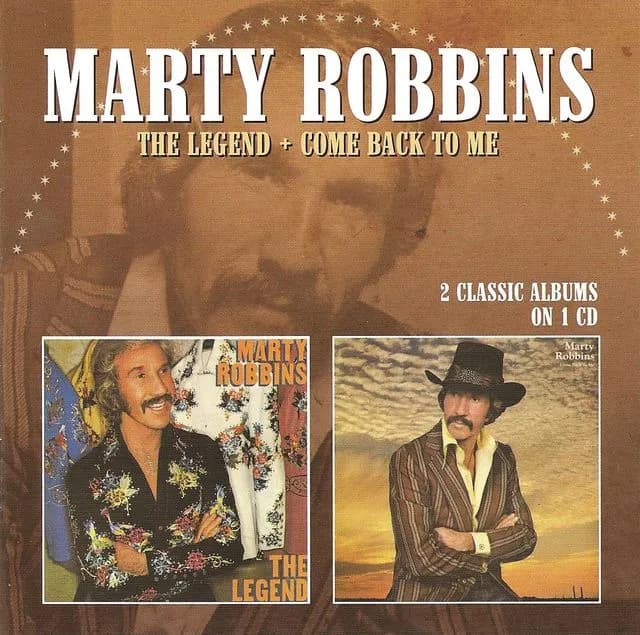
Marty Robbins’ “Chained to a Memory”: A Heartbreaking Examination of Love’s Unbreakable, Painful Grip
When Marty Robbins ventured away from the dust of the trail and the drama of gunfights, he often entered the realm of the profoundly vulnerable love song. “Chained to a Memory” is a quintessential example of this, a slow, aching ballad that moves beyond simple heartbreak into a deep, philosophical exploration of how a truly significant past love can permanently imprison the soul. It’s a song that speaks directly to those of us who know that some memories, no matter how painful, are impossible to break free from.
“Chained to a Memory” was a significant track from Marty Robbins’ 1963 album, Marty’s Greatest Hits. While the song itself was not released as a contemporary chart single—it appeared on a compilation album of his previously released material—it quickly became a beloved deep cut that showcased his mastery of the emotional ballad form.
However, the song had an earlier life. It was originally a pop hit for other artists in the 1940s, notably Eddy Howard. Robbins often dipped into the pre-rock era songbook, bringing his smooth, versatile vocal style to bear on classic themes of enduring love and loss. Robbins’ choice to include this melancholy standard on a collection otherwise filled with his charting hits demonstrates his belief in its enduring quality and emotional resonance with his dedicated audience.
The meaning of “Chained to a Memory” is clear and profoundly sad, focusing on the inability of the narrator to move on from a past love, despite the relationship being over. The lyrics are a raw confession of the psychological bondage that a deep attachment can create:
“Chained to a memory, with no hope of being free, And darling, I’ve tried so hard to find a new love, but it won’t let me be.”
The song uses the metaphor of being chained to vividly convey the lack of control the narrator feels over his own emotional future. He isn’t chained to a physical object; he is chained to the memory of a love that was so powerful, so defining, that it has left no room for any new emotion or new person. Every moment of his present is overshadowed by the brilliance of his past.
For mature listeners, the track is especially potent because it speaks to the realization that some emotional scars simply never fade. We understand that time doesn’t truly heal everything; sometimes, it merely allows us to manage the pain. Marty Robbins sings this with a measured, restrained sorrow, his voice gliding smoothly over the traditional ballad arrangement. There’s no anger or desperation, only a quiet, resigned finality—the mature acceptance that this love, though gone, has permanently defined him.
This song is a quintessential Robbins moment because it blends the grand, cinematic sweep of his Western stories with the intimate, internal drama of the human heart. He takes a universal theme of heartbreak and elevates it into an admission of eternal fealty to the past. It’s a beautiful, aching reminder that the greatest prisons are often the ones we carry inside, built from the gold and iron of our most cherished, yet lost, memories.